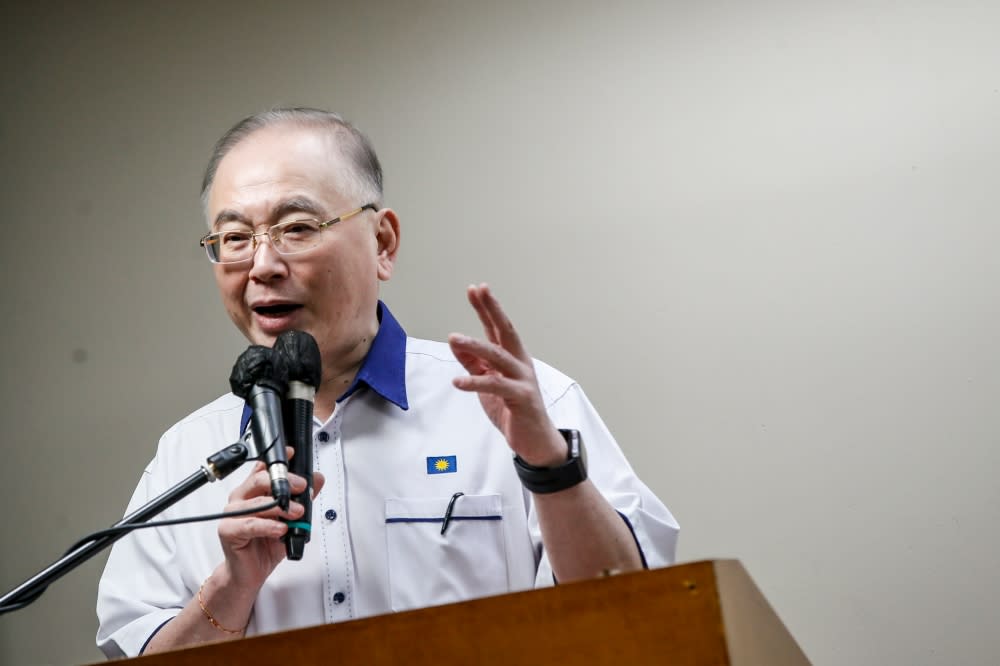Exempt utilities from SST hike, Ka Siong tells Putrajaya

KUALA LUMPUR, Feb 22 — MCA president Datuk Seri Wee Ka Siong has urged the government to exclude water and electricity from the upcoming 2 percentile pile increase in sales and service tax (SST), just like for food and beverages (F&B), parking and telecommunications charges.
Wee said that including the utilities in the planned SST hike would increase the financial burden on consumers, leading to higher costs down the line, The Star reported today.
“The exemption is only given to F&B, parking and telecommunications, and only these sectors have been given a waiver. But water and electricity are being subjected to an increase.
“Every consumer would need to pay, so it would lead to an increase in production costs for manufacturers as well as rentals, as most shops would also be subject to the increase.
“The increase in SST (for water and electricity bills) will cause a cascading effect. We should be careful. The best thing is for SST to remain as it is for water and electricity,” he was quoted as saying.
He said MCA raised this to provide check-and-balance to the government.
“In a democratic country it is important for the wakil rakyat to speak up for the people and understand that their grievances need to be conveyed to the authorities,” he was quoted as saying, using the Malay word for elected representative.
He noted that certain exemptions had been allowed, and pointed to the recent decision to exclude SST for traditional and complementary medicine (TCM) since western medicine is spared the same tax.
He said MCA had opposed SST on TCM, which the Health Ministry has accepted as alternative health treatments and expressed his party’s appreciation to the government for following through on that score.
Traditional Chinese, Malay and Indian medicine, as well as homeopathic, chiropractic, osteopathic and Islamic medical practices are exempted from SST.
Wee also suggested the Anwar government consider bringing back some of the policies that had been previously implemented by Barisan Nasional when it was in power, instead of introducing new policies.
He cited the Goods and Services Tax (GST) as an example.
Wee said the “unity government” can revive the consumer tax cancelled in 2020, claiming that it had benefited the public when it was introduced in April 2015 at a rate of 6 per cent.
"From low value goods tax (LVG), luxury goods tax, increased SST rates and capital gains tax, implementation of e-invoicing and so on.
"I think we should revert to GST by improving the input system and reducing the GST rate. There is nothing wrong if we revert to the old policy as long as it is for the benefit of the people and the country,” he was quoted as saying.
Wee said that the government should also implement the policy of rationalising the RON95 subsidy after collecting data comprehensively and precisely.
“It should be remembered that policies that burden the people should be implemented through scientific studies, in phases and not spontaneously.
“Listen to the people's complaints about the Main Data Base, especially in terms of cyber security and also the completeness and accuracy of the data,” he was quoted as saying.


